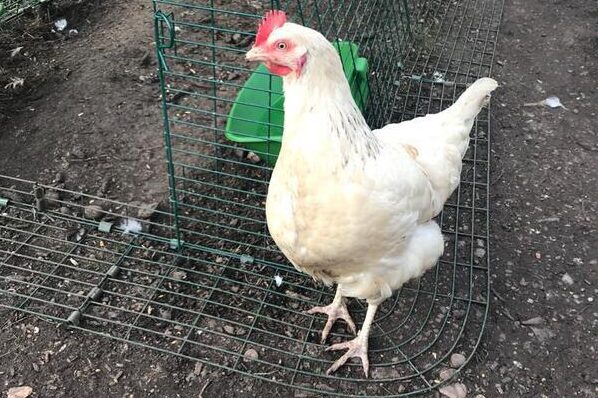Why chickens are the ultimate anti-waste weapon!
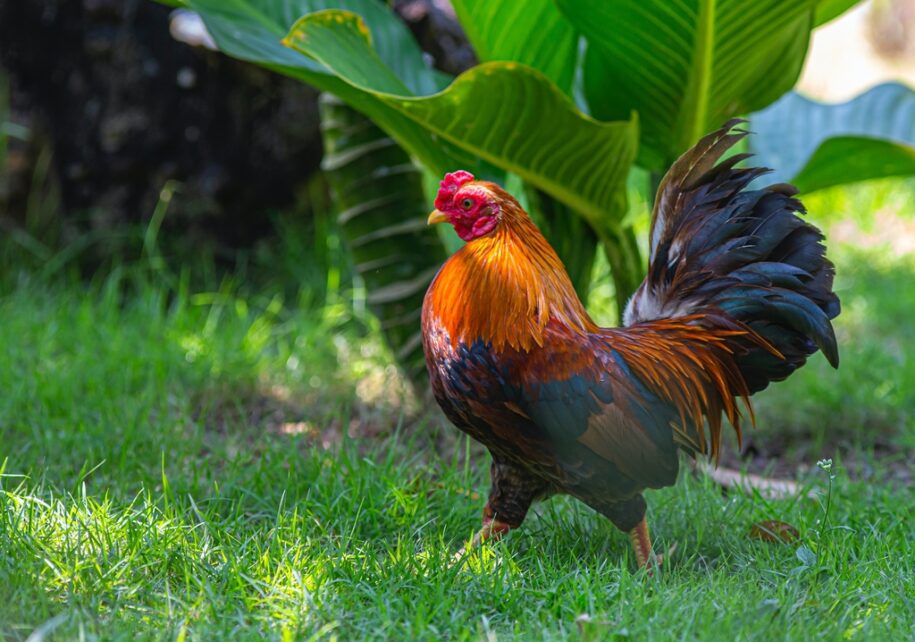
Photo Photo by Erik Karits from Pexels
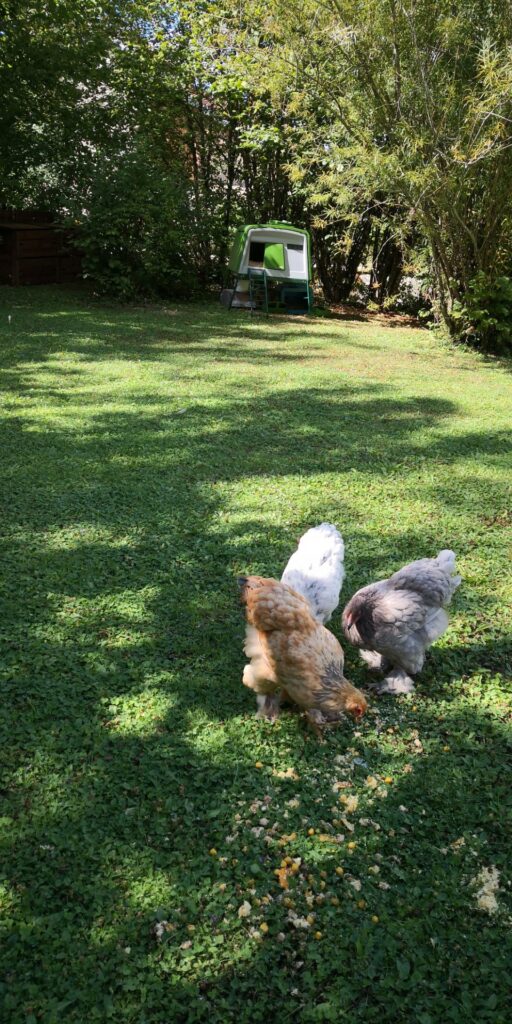
Chickens and green eco-living go hand in hand. Hens are a great part of the ecosystem of a healthy garden, and they also ‘recycle’ a lot of food that would otherwise be thrown away.
Converting scraps into eggs is a powerful symbol of eco-friendly living. Keeping your own hens is also a significant step in the direction of a ‘green’ lifestyle. No intensive rearing, crowded barns or other ethical issues involved!
Kitchen scraps can be a healthy supplement to your hens’ pellet-based diet. Chickens are omnivorous and will eat most of the things you offer them, including cooked pasta, wholemeal bread (soaked in water to avoid it swelling in the bird’s crop), green vegetables, cereals, cooked meat (nothing cured or salted), banana, sunflower seeds, alfalfa, pumpkin, courgette, butternut squash, sweet potatoes and cucumbers. If you hang a cabbage or broccoli stalks in the chicken run, the hens will have great fun pecking at it.
Treats such as bread, cereals and pasta should only be fed in moderation, as they have little nutritional value and can cause your chickens to pile on the pounds. Dairy products and too much lettuce (especially Iceberg varieties) can cause diarrhoea, so these should also be avoided.
Chickens enjoy many garden plants, including nettles and dandelions. There are several toxic wild foods, though, and this is a hazard when feeding wild-sourced foods. A good starting place is the Plants and Foods that are Poisonous for Chickens page in Omlet’s online chicken guide.
Foods that should never be given to chickens
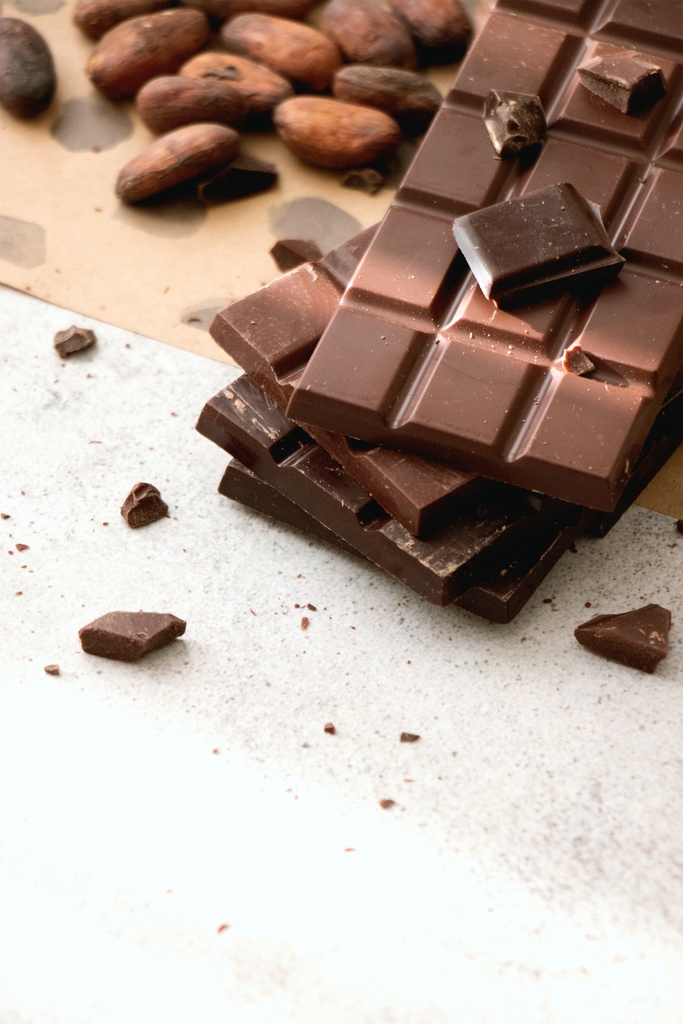 Potatoes, tomatoes, and aubergines (eggplant) are in the Nightshade family, and they are toxic for chickens. That applies to all raw forms of these foods. The toxic ingredient, solanine, is broken down when the plants are cooked, and so cooked potatoes or tomatoes will not cause problems.
Potatoes, tomatoes, and aubergines (eggplant) are in the Nightshade family, and they are toxic for chickens. That applies to all raw forms of these foods. The toxic ingredient, solanine, is broken down when the plants are cooked, and so cooked potatoes or tomatoes will not cause problems.
The other everyday foods that you should never feed to chickens are apple seeds, avocados, chocolate and other confectionary, salty foods such as bacon, cheese and crisps, dried raw beans and pulses, and raw garlic, onions and leeks.
Citrus fruits are mildly toxic, and although they will not kill your chickens, if fed in excess they will cause diarrhoea and a drop in egg production.
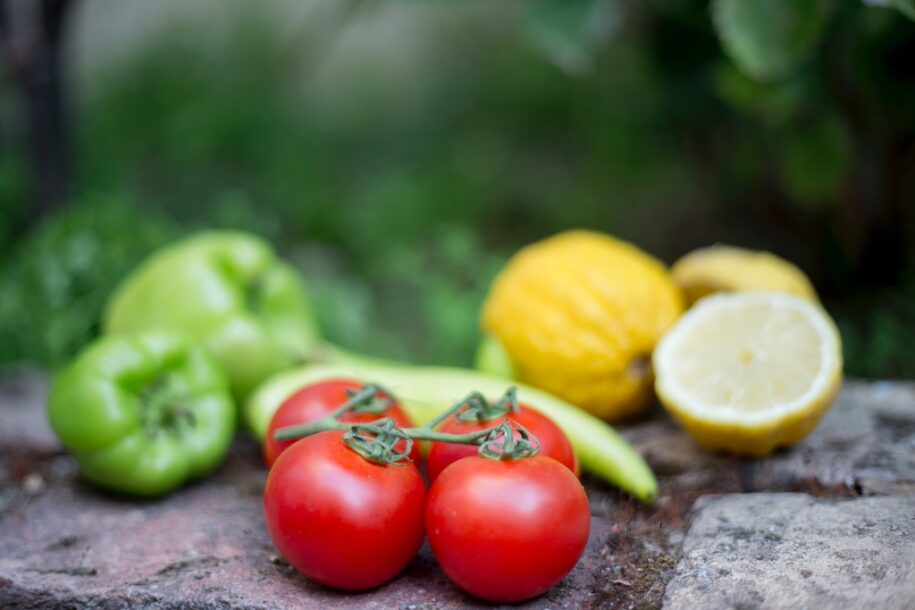
Photo by Tetiana Bykovets on Unsplash
It also needs emphasising that all kitchen scraps offered to chickens should be fresh. Any mouldy food should be thrown away and not fed to chickens, other pets or wild birds.
Overripe and wilted vegetables or stale bread are all fine as long as there is no mould present.
You should only feed wild plants to chickens if you know they are safe. First, you need to identify the plant. If you are in any doubt, don’t give the plant to your chickens.
…And don’t forget the chicken manure
The food waste fed to chickens isn’t all transformed into eggs, of course. Some of it is ejected as chicken poo, and this is an excellent fertiliser once it has been rotted down. Chickens droppings should never be applied fresh to vegetable or flower beds, but should be added to the compost heap along with the soiled bedding from the coop.
In intensive hen farms, waste is a big problem, as run-off from accumulated chicken droppings can pollute rivers. On the small scale of backyard hens, though, composted chicken poo is a great benefit to the garden.
How chickens help you stop wasting food
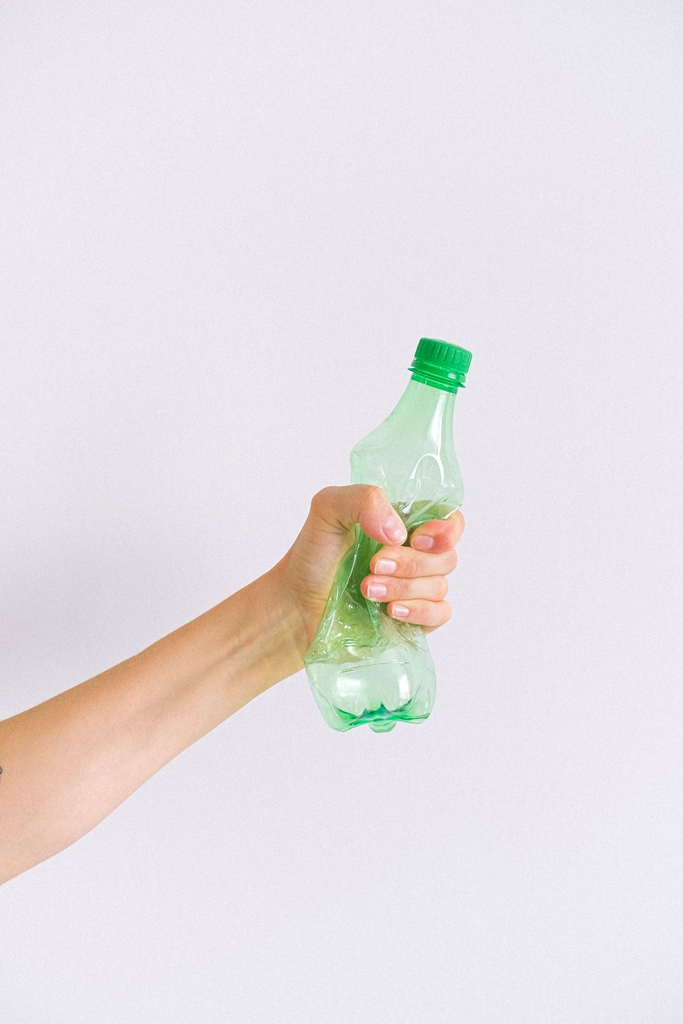
When you feed kitchen scraps to chickens, you suddenly become aware of what you and your family are wasting. Those scraps are all things that were being routinely thrown away before you invested in a chicken coop and a few hens.
This may make you reassess your buying and cooking habits, and it puts the notion of food waste into a new perspective. As a result, you may stop cooking more than you need, and you may stop bulk-buying and keeping veg in the fridge until it rots. If finances are tight, these details can make a big difference to the family budget.
To begin with, you may have enjoyed taking all those leftovers out to the hens, but once you start to question the cost of it all, it gets you thinking. How much are you effectively ‘spending’ on kitchen waste for your chickens? After all, the hens can get all the nourishment they need from a diet of layers pellets, grain, grit and lots of dandelion leaves. They don’t actually need those kitchen scraps.
Once you’ve found a balance here that suits your lifestyle, it can lead to other positive changes in your attitude to waste and sustainability in general. Your chickens can teach you, in a roundabout way, to reduce food waste, and that poses the question – what other waste could you reduce? The list here is endless, but it begins with single-use plastics and other environmentally unfriendly products and packaging. We’ve moved a long way from the throwaway culture of previous decades, but there’s still a long way to go.
Photo by Anna Shvets from Pexels
How local communities use chickens for anti-waste campaigns
Some communities have taken this thinking to its logical conclusion, reducing personal waste on the one hand and, on the other, making sure nothing is wasted. Chickens are the beneficiaries here. Any appropriate waste food – from households, restaurants or shops – is collected and fed to the communal flock. The hens convert the waste into eggs, which are enjoyed by everyone involved in the community scheme. There is very little extra expenditure involved, so people are, in effect, getting their eggs for free.
To give a large-scale example of this, in Austin, Texas, a local authority pioneered a zero-waste food programme a few years ago, paying people in the area to keep backyard chickens. The hens were fed solely on waste food, of sufficient variety and high quality to satisfy the birds’ nutritional requirements. The goal was to reduce the amount of food entering landfills. In redirecting it to backyard chickens instead, there has been a substantial reduction in landfill-derived methane emissions.
Some schools in the UK, the USA and elsewhere have taken up this anti-waste challenge too, channelling the community’s waste food to their chickens. It’s certainly food for thought!
The thought of household waste being converted into fresh eggs is a very pleasing one. Taking that concept to the community level is an exciting idea, and it’s possible that such schemes are about to become commonplace.
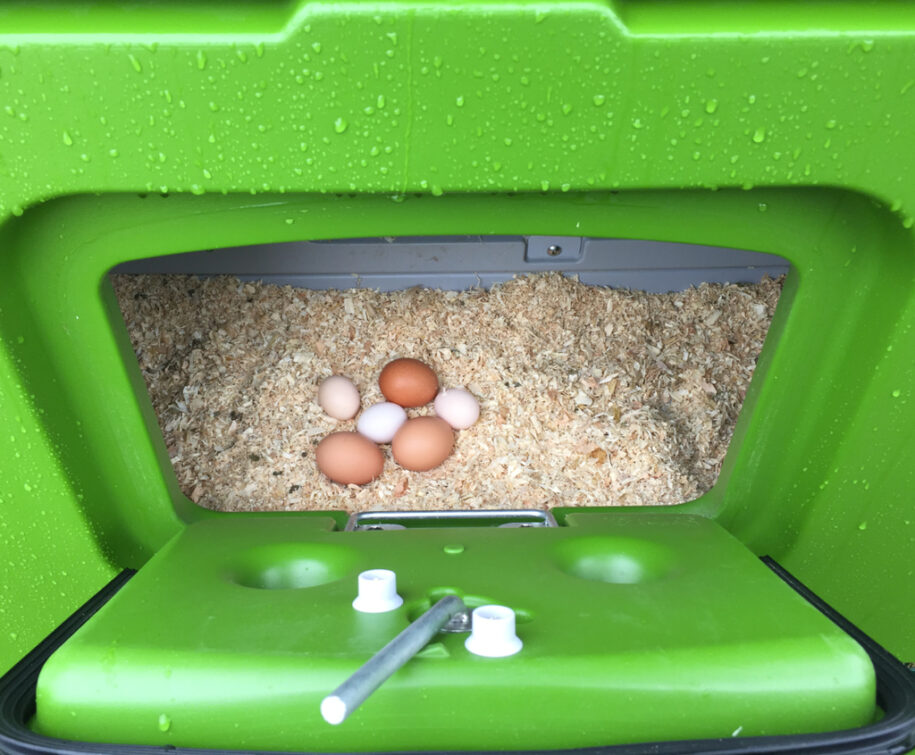
No comments yet - Leave a comment
This entry was posted in Chickens on March 30th, 2021 by juliakretzner









